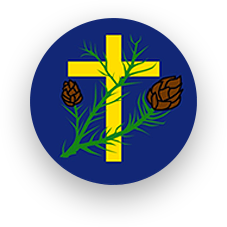SMSC and British Values
Spiritual, Moral, Social and Cultural (SMSC) Provision
At Christ Church CE Primary School, spiritual, moral, social and cultural education underpin all aspects of school life. This work is absolutely integral to everything we do. It plays a significant role in contributing to the high levels of motivation, tolerance and excellent that the children demonstrate at our school.
The individuality of each child is valued and respected in order that:
- they are comfortable with who they are and that they respect others
- they are able to contribute to the life of the school and wider community
- they make a positive contribution to society and are prepared for life in modern Britain
This is not a “subject” in itself but opportunities to promote it are actively planned for across all subject areas of the curriculum; within collective worship; within our behaviour policy, within our safeguarding policy and within everything we do. It has particularly strong links to our work in Personal, Social and Health Education and Religious Education.
Definitions of terms
Spiritual development is the growth of insights, beliefs, attitudes and values which guide and motivate us. Through spiritual development, children can gain a sense of identity, their own self-worth and broader meaning and purpose in life.
Moral development is the building of a framework of moral values which control our personal behaviour. There is a recognition within this area of development that in a multi-racial, multicultural and multi-faith democracy such as Britain there will always be debate about moral values and these will differ from person to person.
Social development is concerned with the each child’s ability to develop the skills, understanding and personal qualities necessary for living and functioning effectively in our multi-racial, multicultural and multi-faith society and to be able to contribute to that society.
Cultural development is the about helping children to understand their own cultural heritage alongside the cultural traditions of the school, the local community, those of the wider British community and the wider world. They will explore these different cultures in order that they are able to understand, accept, respect and celebrate the differences and similarities they discover.
British Values
The DfE have reinforced the need “To create and enforce a clear and rigorous expectation on all schools to promote the fundamental British values of democracy, the rule of law, individual liberty and mutual respect and tolerance of those with different faiths and beliefs.”
Christ Church CE Primary School is committed to serving its community and surrounding areas. It recognises the multi-cultural, multi-faith and ever-changing nature of the United Kingdom, and therefore those it serves. It also understands the vital role it has in ensuring that groups or individuals within the school are not subjected to intimidation or radicalisation by those wishing to unduly, or illegally, influence them.
The Government emphasises that schools are required to ensure that key ‘British Values’ are taught in all UK schools. The government set out its definition of British values in the departmental advice entitled ‘Promoting Fundamental British Values as part of SMSC’ – DfE November 2014 which links to the ‘Prevent Duty’ – DfE June 2015 that requires all schools to have “due regard to the need to prevent people from being drawn into terrorism”.
The fundamental British Values that schools should have regard to are those of:
- Democracy
- The rule of law
- Individual liberty
- Mutual respect
- Tolerance of those of different faiths and beliefs





